Resilience in Stressful Events helps avert caregiver burnout, stress
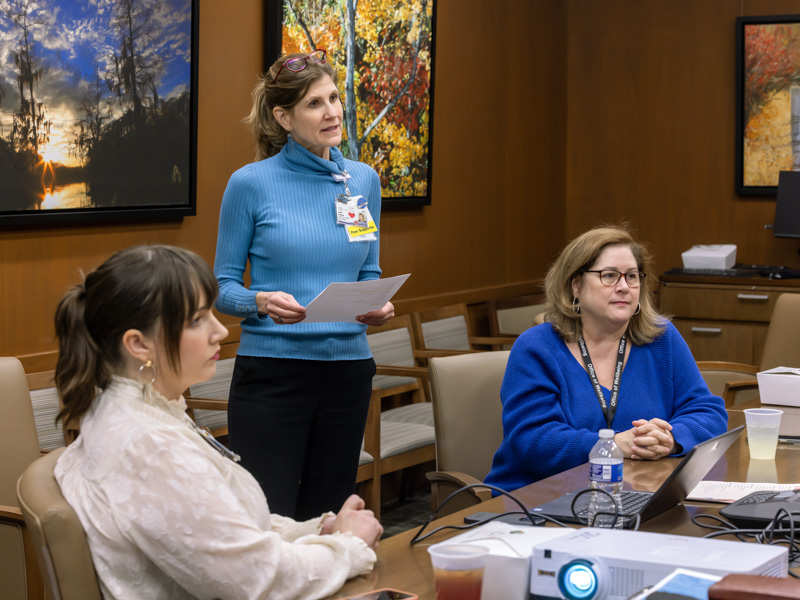
Renee Greene remembers the time she was a listening ear to a nurse manager in crisis.
“They’d had a hostile patient,” said Greene, manager of health education for the University of Mississippi Medical Center’s Department of Surgery. “It was a lot.
“She was worried they might quit, but she knew they loved their jobs. She was trying to keep her employees happy, and to take care of patients. She needed to vent her frustrations as a manager.”
As peer support volunteers for RISE, short for Resilience in Stressful Events, Greene and others are there for employees who need someone to affirm their experiences, with no judgment. RISE offers a workplace support system for caregivers whose stress can become or has become traumatic, hindering their ability to deliver safe and compassionate care.
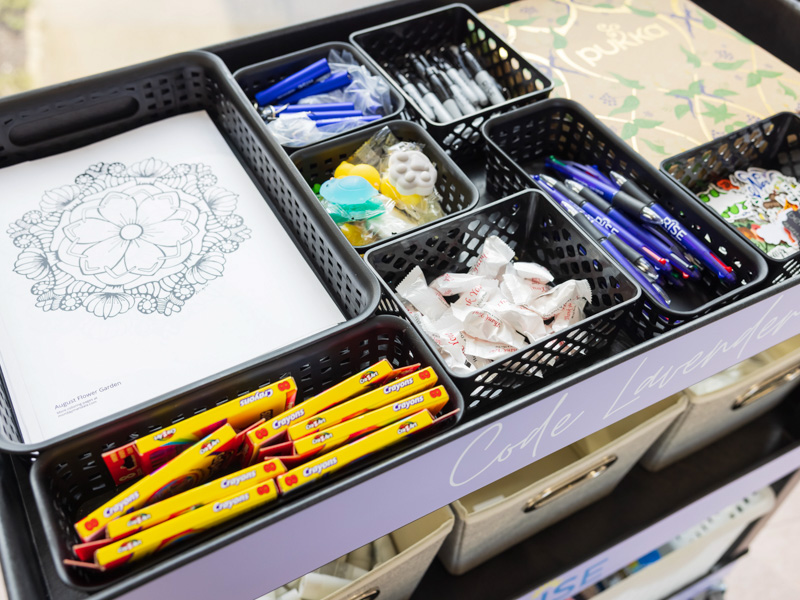
A $3 million federal grant announced early this year is hard at work, speeding the expansion of RISE and other initiatives at the Medical Center to alleviate employee stress and exhaustion.
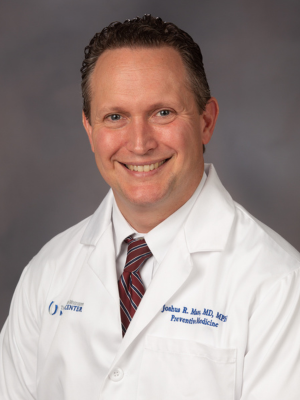
“The biggest thing is that there is more available now. Our robust program is made possible by this grant,” said Dr. Joshua Mann, chair of the Department of Preventive Medicine and director of UMMC’s Office of Well-being.
“We hope that people who need it will use it.”
Both new and continuing programs that provide psychological resources are under the RISE umbrella. UMMC implemented the national RISE program in 2019; it’s intended to reach all health care staff and Medical Center employees, not just physicians and nurses.
The Office of Well-being is a service area of UMMC, working independently from other departments to focus on improving faculty, staff and student well-being.
The three-year funding comes from the U.S. Department of Health and Human Services’ Health Resources and Services Administration and is part of an overall $103 million in national awards. The goal of the funding is to retain health care workers by addressing their mental health needs and by responding to the nation’s ongoing critical staffing needs.
The potential reach of the newest layers of RISE is significant. The Medical Center has about 6,000 clinical employees, 3,000 of them nurses, and overall, about 10,000 employees statewide.
The newer facets of RISE provide personal, one-on-one interactions between employees and people who can help them:
- A 24/7 anonymous Crisis Text Line is available for employees who are struggling, but who want assistance from outside the Medical Center. Text HOME to 741741.
Send the text, “and someone will help you if you’re in crisis,” Mann said. That may be through referrals for local services or one-on-one counseling to avert a current crisis, he said.
Hand in hand with that is a national Suicide and Crisis Lifeline for someone considering suicide, experiencing emotional distress, or worried about someone considering suicide. Call or text 988 to connect.
- Employees can reach out to a UMMC peer support volunteer trained in listening skills and empathy. Someone is available 24/7 at 601-815-RISE (7473).
Iesha Smith, a licensed professional counselor in the Office of Well-being, answers from 7:30 a.m.-4:30 p.m. weekdays, with peer support volunteers on duty nights and weekends.
Peer support volunteers come from all walks of campus, from nutritionists to physicians to social workers, said Sondra Redmont, the Office of Well-being’s administrator.
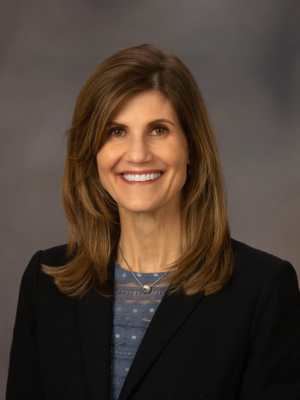
“We’re there to listen,” she said. “Sometimes, people need to get things off their chest. We’re there to provide support and to remind people of their own internal resources to manage their stress and bounce back from stressful experiences.”
Peer support volunteers inform employees about programs through the Office of Well-being, including mindfulness and yoga exercises. “We have a form online where people can request peer support,” Redmont said.
“I tell myself, ‘Just listen. Don’t fix,’” Greene said. “That’s what we all want to do – to fix things – but our job as a volunteer is to do nothing but listen and direct them to resources.
“One employee called and said that she got ugly with a patient and that she felt terrible about it,” Greene remembered. “She said, ‘I’ve never done that before. I know I’m going to get in trouble.’ I talked to her more, and I found out that she had a serious disease and absolutely no one else to help her.
“Sometimes, you can tell the person just needs to get something off their chest. By the end of the call, they are calmer and feel better. They know they aren’t alone in their frustration.”
The Office of Well-being is expanding peer support volunteers to UMMC Holmes County in Lexington and UMMC Grenada. “Our peer supporters are amazing,” Redmont said. “They really care and want to make sure that everyone at UMMC experiences well-being. They get it.”
The program seeks more peer support volunteers, Redmont said. Email rise@umc.edu or complete a nomination form here .
- When a hospital unit has experienced a stressful or traumatic event, or is going through an especially tough period, the nurse manager can reach out to the Office of Well-being and call a Code Lavender. Peer support volunteers will roll a cart with self-care items such as body products, chocolate and lavender-scented things to their floor, and employees choose what helps restore them.
Greene quickly offered to dispatch the Code Lavender cart to the floor of the nurse manager who called about the hostile patient. Code Lavender recently expanded to the Lexington and Grenada campuses, Redmont said.
“There doesn’t have to be a crisis event,” Mann said. “If a nurse manager feels their unit has had a particularly stressful week, a Code Lavender can bring some cheer. It’s a way to improve morale.”
- Well-Being staff also go on wellness rounds, checking in with hospital inpatient floors to ask how everyone is doing and share resources. “We ask, ‘What makes a good day?’” Redmont said. “We can amplify that on a unit by working with their leadership.”
The grant made it possible for the Office of Well-being to hire mental health professionals to offer an interactive screening program allowing employees to anonymously complete an online form that screens for stress, depression and other mental health conditions, and to receive an anonymous response, feedback and resources from a mental health counselor, Mann said.
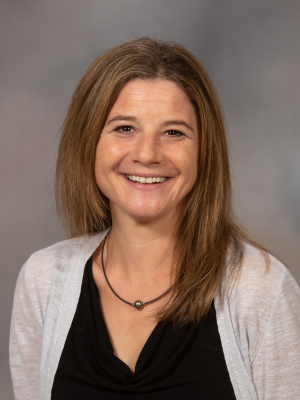
Dr. Julie Schumacher, a professor in the Department of Psychiatry and Human Behavior, is working with Redmont and Smith to implement the anonymous screening. Employees also can opt to complete a free online self-assessment from Mental Health America.
When the grant was received, the Omicron variant of COVID-19 was becoming rampant. That acute stress has lessened, Mann said. “It’s now more fatigue, wear and tear, and short staffing,” he said. “A lot of that circles back to COVID, but it’s not the same stress we had a year ago.
“We are eager for feedback. If someone attempts to use something and it’s not useful, we want to know,” Mann said. “We want to continuously improve.”
Feedback will be sought from every employee through a well-being survey in early 2023.
“We’ve got all these people at UMMC who support each other in different spaces,” Redmont said. “We’re just a big family.”


